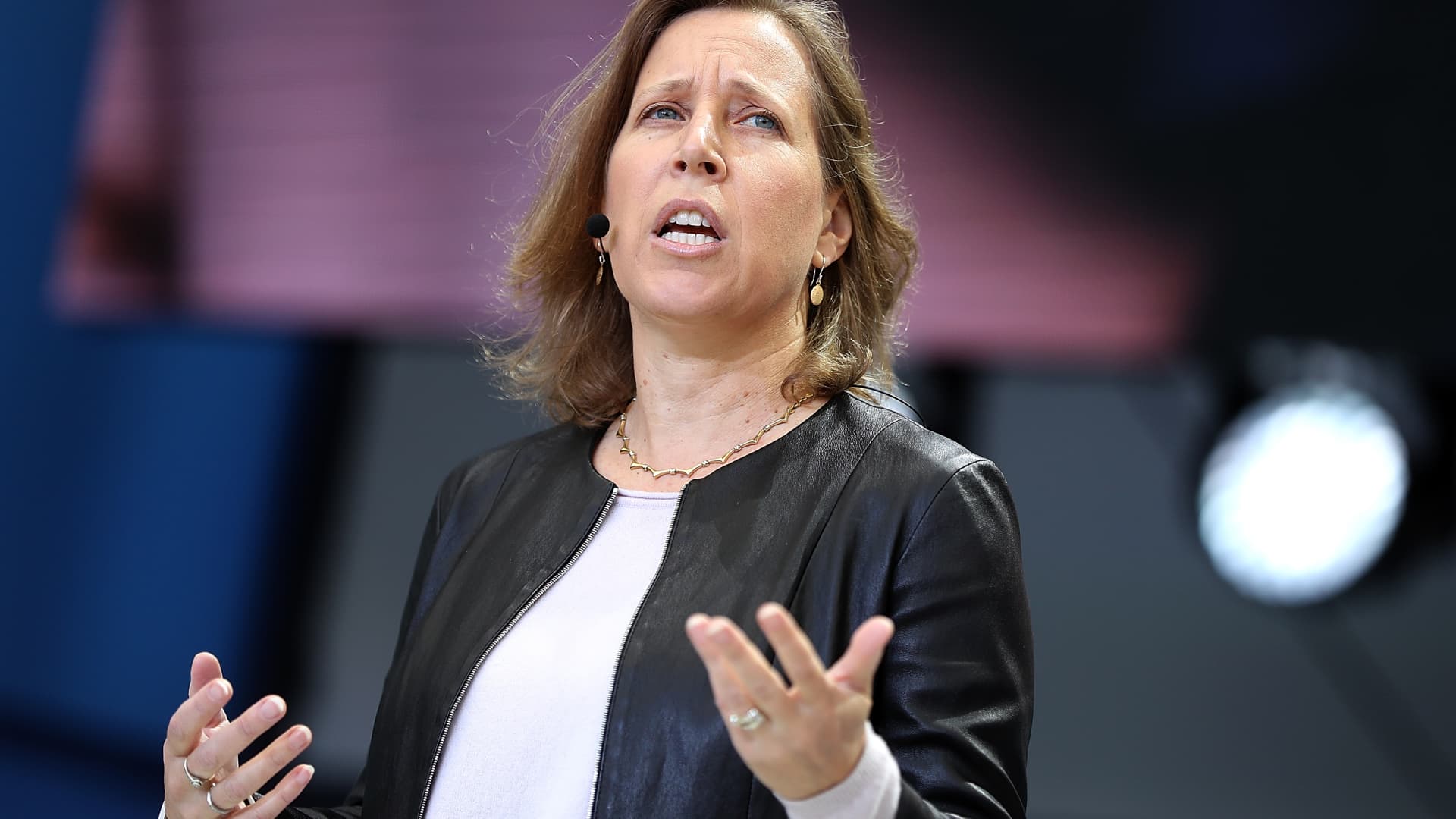[ad_1]
YouTube CEO Susan Wojcicki in 2014 quietly held talks about leaving Google to become Elon Musk’s second-in-command at Tesla, according to a new book on the video service.
In the forthcoming book, “Like, Comment, Subscribe: Inside YouTube’s Chaotic Rise to World Domination,” author Mark Bergen writes that the executive, known for being loyal to Google cofounders Sergey Brin and Larry Page, talked about becoming Tesla’s Chief Operating Officer before becoming YouTube CEO in 2014.
At the time, Wojcicki had been senior vice president of ads and commerce at Google and had been looking for a higher-level role, the book said, citing those close to her.
“By then, Page had begun plotting his own exit — a plan to hand Google off to a trusted deputy, Sundar Pichai,” Bergen reports. In a conversation, Laszlo Bock, Google’s HR chief at the time, said he “suggested Page could more easily clear the way for his chosen successor by moving Wojcicki to YouTube.”
The announcement of Wojcicki’s appointment came as a shock to many Googlers, the book says.
Wojcicki had one of the earliest connections to Google — in 1998, she famously let Page and Brin, who still hold majority shareholder voting power of Google parent company Alphabet, work from her garage when they were starting the company. Her sister, 23andMe founder Anne Wojcicki was married and had kids with Brin.
In the book, Bock compared Google to a family enterprise, and the book says Wojcicki often was able to get Page’s attention.
“When people couldn’t get him to see reason, she always could,” said former Google director and early Silicon Valley workplace influencer Kim Scott, who referred to her in the book as “a Larry whisperer.”
One example is how Google used search data.
“Wojcicki wanted to use search queries to inform ads people saw on all those banner ads Google ran across the web; if advertisers could target consumers based on searches and on websites, they might spend gobs more with Google,” the book says.
Page had long wanted to keep search data from everything else but Wojcicki “felt this wasn’t keeping up with trends in the ad industry, which sought ever more data.”
“The founders trust Susan maybe more than anybody on the planet,” Patrick Keane, an early Google sales director, said in the book. “You could never get Susan rattled, no matter how challenging the moment was.”
YouTube was also discussed as a potential spinout, the book reports.
The year after Wojcicki’s appointment, in 2015, Larry Page, announced the creation of Alphabet, a new holding company, that would separate several businesses, including self-driving car Waymo and health sciences unit Verily, from Google.
“YouTube seemed like a natural splinter; it already operated with a different name and office,” the book states. “Leaders there considered plans to become a separate Alphabet unit, detached from Google. Wojcicki wanted to keep reporting to Page, who had appointed himself Alphabet CEO, rather than his successor at Google, Sundar Pichai. But ultimately it was decided YouTube was too intertwined with Google’s business and machinery to leave. So it stayed at Google.”
Under Wojcicki’s watch, YouTube grew to reach more than 81% of U.S. adults and generate nearly $29 billion in revenue in 2021.
[ad_2]
Image and article originally from www.cnbc.com. Read the original article here.

